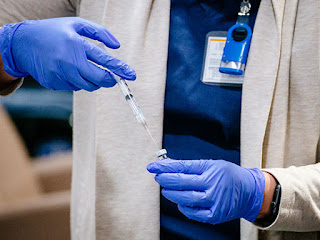Knockout of Factor-Inhibiting HIF (Hif1an) in Colon Epithelium Attenuates Chronic Colitis but Does Not Reduce Colorectal Cancer in Mice
Inflammatory bowel disease, such as chronic colitis, promotes colorectal cancer, the leading cause of cancer death worldwide. Hypoxia is characteristic of inflammation and solid tumors and forces a gene expression response controlled by hypoxia-inducible factor (HIF). Once established, solid tumors are immunosuppressive and avoid attack by immune cells. HIF activity is known to 1) promote the development of cancer and 2) promote the suppression of tumor immunity through the secretion of adenosine, but procollagen-hydroxylase and asparagi called factor-inhibiting HIF (FIH). Both nylhydroxylase negatively regulate HIF. Therefore, FIH can act as a tumor suppressor in the development of colorectal cancer. This study investigated the role of colonic epithelial FIH in a mouse model of colitis-induced colorectal cancer. A Vil1Cre / FIH + f / + f and wild-type siblings of azoxymethane/dextran sulfate model were used to recreate the development of colitis-related colon cancer in mice. Colon samples were analyzed for RNA and protein expression and histology. Vil1Cre / FIH + f / + f mice showed less severity of colitis and fewer macrophages infiltrating inflamed tissue compared to FIH + f / + f animals. RNA sequencing of colon tissue revealed low expression of genes associated with the immune response in Vil1Cre / FIH + f / + f mice. However, the incidence of tumors was not significantly different between Vil1Cre / FIH + f / + f and wild-type mice. Therefore, FIH knockouts in colonic epithelial cells did not regulate the development of colon cancer, but reduced the inflammatory response in chronic colitis.




Comments
Post a Comment